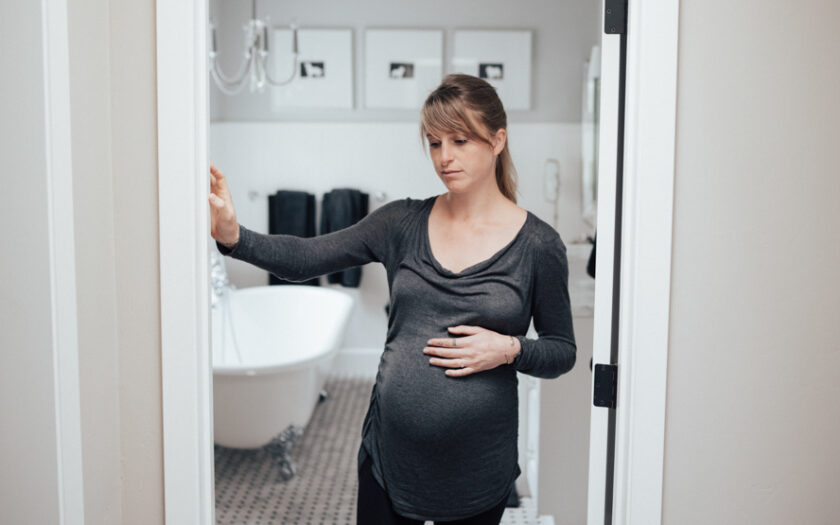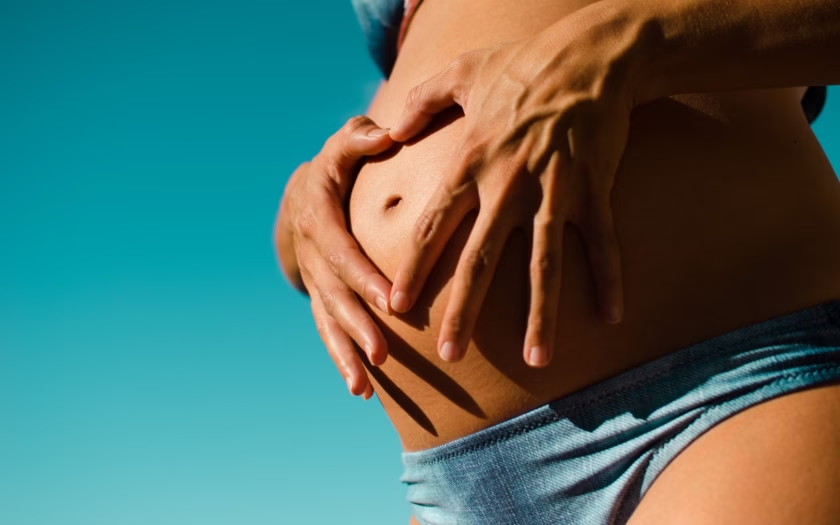Frequent urination during pregnancy is the need to urinate more often than usual. This is a common symptom caused by hormonal changes and increased blood flow to the pelvic area. As the pregnancy progresses, the growing uterus also puts pressure on the bladder, further increasing the frequency of urination.
Understanding the Reasons Behind Increased Urination During Pregnancy
Needing to go to the toilet more often during pregnancy is normal and can be attributed to several factors:
- hormonal Changes. Early in pregnancy, increased levels of hormones like human chorionic gonadotropin (hCG) and progesterone cause the kidneys to work more efficiently, resulting in more frequent urination.
- physical Changes. As the pregnancy progresses, the growing uterus exerts pressure on the bladder, leading to a more frequent need to urinate.
- weak Pelvic Floor Muscles. Pregnancy can weaken the pelvic floor muscles, which support the bladder, uterus, and bowel. This weakness can contribute to increased urination.
These changes are a natural part of pregnancy, and understanding them can help manage this common symptom.
Timing and Triggers of Frequent Urination During Pregnancy
Frequent urination is a common concern for many pregnant individuals, and understanding when it occurs and what triggers it can help manage this symptom effectively. Throughout pregnancy, hormonal changes, physical developments, and other factors contribute to the timing and triggers of frequent urination, impacting women differently at various stages of gestation. Frequent urination is common at every stage of pregnancy:
- Early Stages. Hormonal changes increase the frequency with which you need to use the toilet. Increased levels of human chorionic gonadotropin (hCG) and progesterone cause the kidneys to work more efficiently, leading to more frequent urination.
- Mid to Late Pregnancy. As your uterus grows to accommodate your developing baby, it pushes against your bladder and bowel, making incontinence more likely.
- Final Weeks. You may struggle to empty your bladder completely. Additionally, you might experience slight leakage when coughing, sneezing, or lifting things, as these actions place more pressure on your pelvic floor.
During pregnancy, the pelvic floor muscles often weaken, contributing to these symptoms. Understanding these changes can help you manage frequent urination more effectively.
Managing and Minimizing Frequent Urination Throughout Pregnancy
While you may not be able to completely reduce the need to urinate often during pregnancy, strengthening your pelvic floor muscles can help manage this symptom.
Pelvic floor exercises can assist you in better controlling your bladder and bowel movements. By strengthening these muscles, you can improve your ability to ‘hold in’ urine until you reach a toilet. These exercises also provide essential support for your bowel, uterus, and bladder throughout pregnancy.
It’s beneficial to start pelvic floor exercises before pregnancy, but it’s never too late to begin. Consistency is key, so remember to continue these exercises even after your baby is born.
The Continence Foundation of Australia has produced a helpful video demonstrating pelvic floor exercises, which can guide you through the process.
Understanding Frequent Urination During Pregnancy: When to Seek Further Evaluation
While frequent urination during pregnancy is often normal, there are certain circumstances where seeking medical advice is important.
If you experience a stinging or burning sensation, or any pain while urinating, it’s essential to talk to your doctor or midwife. These symptoms could indicate a urinary tract infection, which requires prompt treatment to prevent complications.
Additionally, if you suspect that your amniotic fluid (the water around your baby) is leaking, it’s crucial to consult your healthcare provider. This could be a sign of premature rupture of membranes and needs to be assessed promptly to ensure the safety of you and your baby.
Postpartum Urinary Changes: What to Expect After Delivery
After giving birth, you may continue to experience increased urination, which is normal as your pelvic floor muscles recover.
Some individuals may notice improvements in the frequency of urination within the first 3 to 6 months postpartum, while for others, recovery may take longer.
Continuing pelvic floor exercises is crucial during this time to aid in muscle recovery. Your midwife can provide guidance on what to expect in the weeks and months following your baby’s birth, ensuring you’re prepared for any changes.



